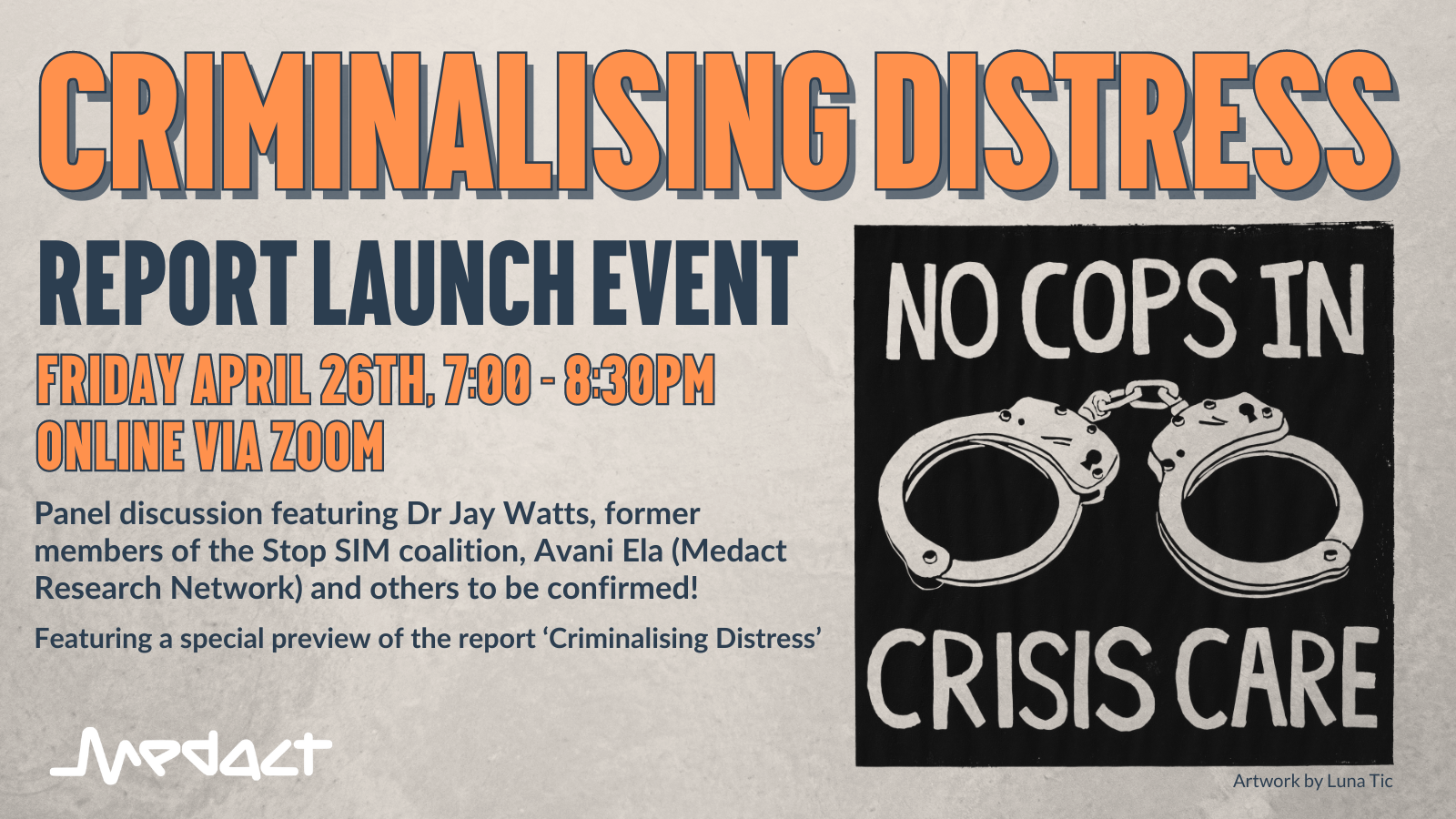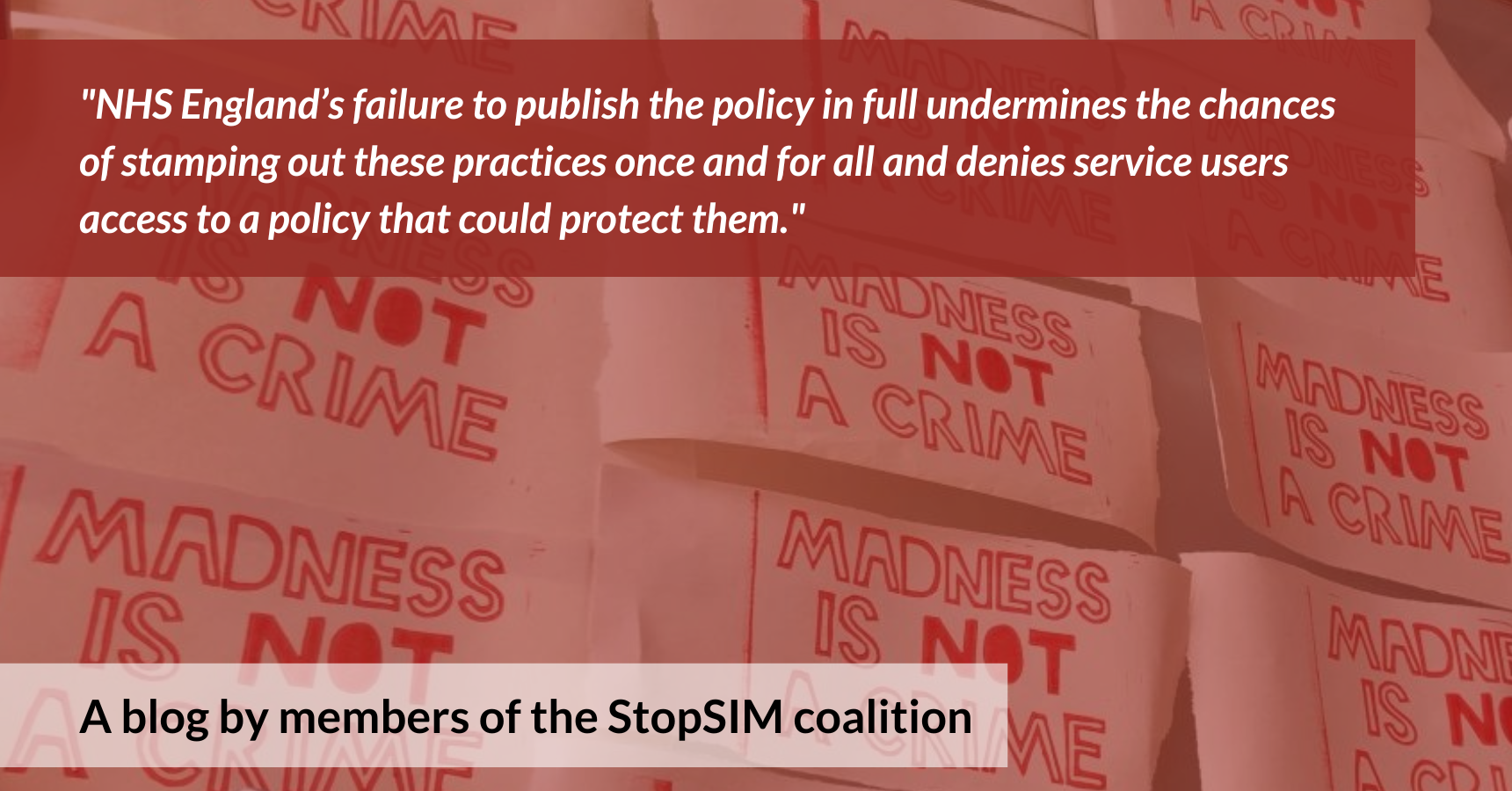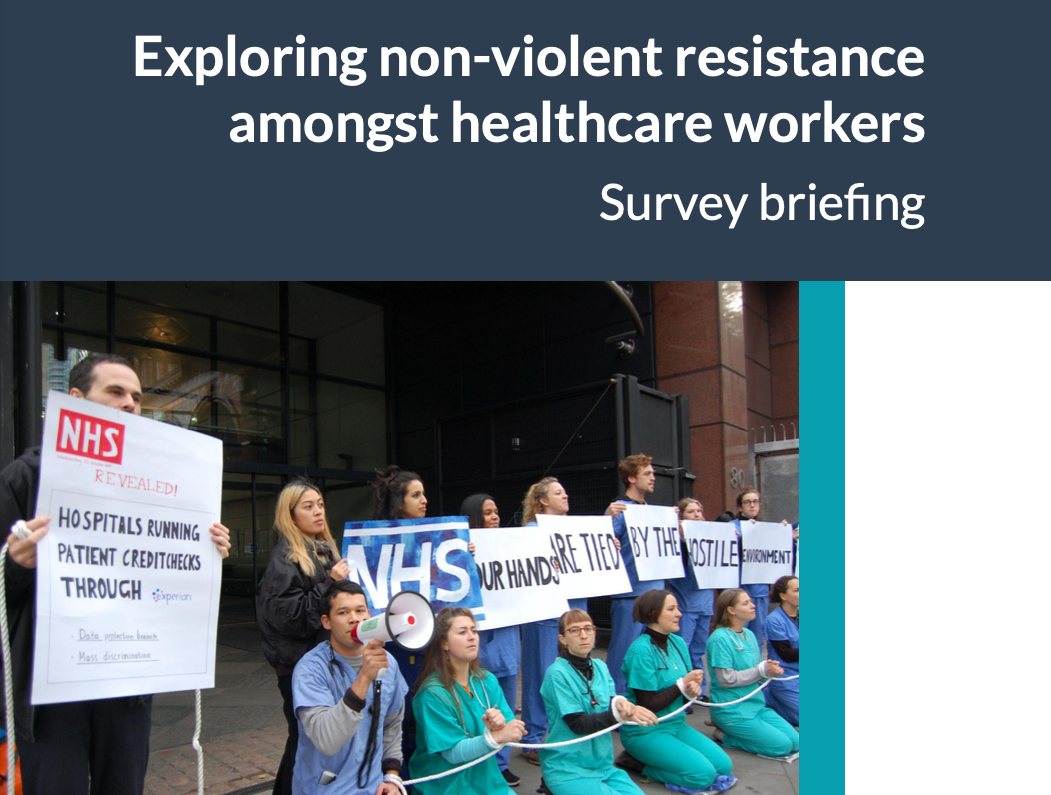-
Criminalising Distress report launch

Join Medact for the launch of our latest report, Criminalising Distress. The report is the result of our independent national study exploring SIM (Serenity Integrated Mentoring) and exposing ongoing SIM-like practices which involve the police in securitising and punishing mental distress.
-
Researching state violence: Deaths by Welfare x Criminalising Distress

For this edition of the Medact Research Network Quarterly meeting, we’re excited to welcome guest speaker Dr China Mills, who manages the Deaths by Welfare Project at Healing Justice London, to introduce us to this project and its impact and implications for health justice work.
-
Why NHS England’s failure to publish our co-produced policy is a betrayal of service users

A new blog by members of StopSIM exploring the impact of NHS England’s betrayal of service users, and failure to to acknowledge the harm caused by their endorsement of SIM and similar models.
-
Criminalising Distress literature review team meeting
The Literature Review team meet as part of the Medact Research Network’s current project ‘Criminalising Distress’.
-
Medact Research Network Quarterly Meeting

The Medact Rights Research Network Quarterly is a space for us to come together, share our work, discuss new projects, or delve into deep discussion about research that has caught your interest.
-
Exploring non-violent resistance amongst healthcare workers – Survey briefing

Our briefing on new research into health workers’ non-violent resistance based on surveys and interviews with Medact members
-
Medact Research Network Quarterly Meeting

The Medact Rights Research Network Quarterly is a space for us to come together, share our work, discuss new projects, or delve into deep discussion about research that has caught your interest. We aim to collectively develop our thought and research practices.
-
Medact Research Network Quarterly Meeting

The Medact Rights Research Network Quarterly is a space for us to come together, share our work, discuss new projects, or delve into deep discussion about research that has caught your interest. We aim to collectively develop our thought and research practices.
-
The joy of collaboration: Writing for Global Health Watch 6

Roman Gnaegi and Catia Confortini As members of the Medact Research Network (MRN), writing the chapter “Conflict and Health in the Era of Coronavirus” for Global Health Watch 6 was a great opportunity to […]
-
Briefing launch: The Public Health Case Against the Policing Bill

An event to mark the launch of Medact’s ‘The Public Health Case Against the Policing Bill’, which aims to articulate and amplify radical public health voices against the Policing Bill’s approach and explore potential alternatives.
-
Briefing Launch: The public health case for the Green New Deal

Join us for this webinar on Thursday 8th April at 7pm to launch the briefing that sets out the public health case for a Green New Deal and hear how you can get involved in the campaign!